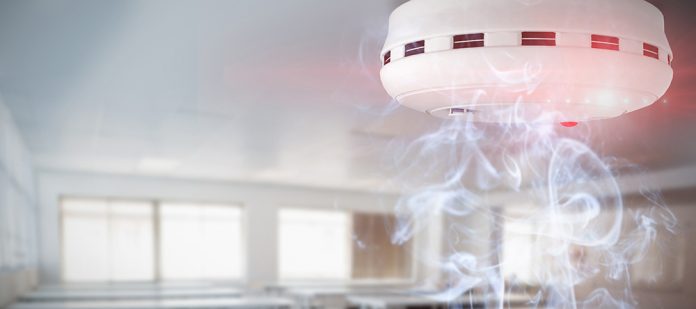Around 64,000 hours of firefighters’ time is needlessly spent each year checking out false alarms from workplaces, figures from the latest Scottish Fire and Rescue Service consultation show.
The Service mobilises on average two fire appliances and nine firefighters to each of the 28,479 false alarms – equating to around 57,000 unnecessary blue light journeys annually.
Most alarms are activated by faults or other causes like steam or burnt food with only two per cent actually involving a fire, most of which are put out before the arrival of crews.
The information has been shared by the national Service as part of its consultation on how to safely reduce call outs to false alarms, known as Unwanted Fire Alarm Signals (UFAS).
Assistant Chief Officer Stuart Stevens says businesses and partners can play a key role in reducing the figures and called on them to get involved in the consultation.
“The advantages of getting duty holders to accept their legal responsibilities and reducing these callouts are clear” said ACO Stevens, “Making this change means we can free up firefighters’ time, be even more responsive in genuine emergencies and use SFRS resources more effectively.
“We can also carry out more training and fire prevention activity, as well as realising the related benefits of improving road safety and reducing our carbon impact. These unnecessary blue light journeys bring risks to our crews, other road users and pedestrians as well as impacting the environment with an estimated 575 tonnes of carbon emissions produced – the equivalent of heating 230 homes a year.
“Businesses will also experience less disruption as they no longer need to wait for us to attend to give the all clear after a false alarm.”
The twelve-week consultation – which seeks views on three proposed options – is underway and while early analysis is encouraging with many members of the public taking part it also indicates a low response rate from the businesses and workplaces that are potentially most affected by the proposed changes.
Assistant Chief Officer Stuart Stevens added: “It may be that these businesses and organisations are taking their time to fully consider the proposed options and I’m also aware last month we were just coming out of a holiday period which is why we’re issuing this appeal for those most affected to take part in the consultation and play their part in helping to shape the future response model.”
The consultation brings the SFRS into line with the majority of UK fire and rescue services response to workplace automatic fire alarms (AFAs) explained Assistant Chief Officer Stevens: “The legal responsibility for dealing with an AFA alert lies with the duty holder of a property and most UK fire and rescue services now seek confirmation of a fire before attending. It’s now time for the SFRS make this change too.”
ACO Stevens added: “Each of the options, which have all been risk assessed, will see a significant reduction in the number of UFAS calls we attend. We want to know what those most affected think of our three proposed options I urge them to have their say on how they think we can best use our resources to keep them, their families and their communities even safer.”
A report based on analysis of the consultation responses – including a preferred option – will be considered by the SFRS Board in December 2021. Any changes to service delivery will be implemented in a carefully managed process and in partnership with directly affected stakeholders.






